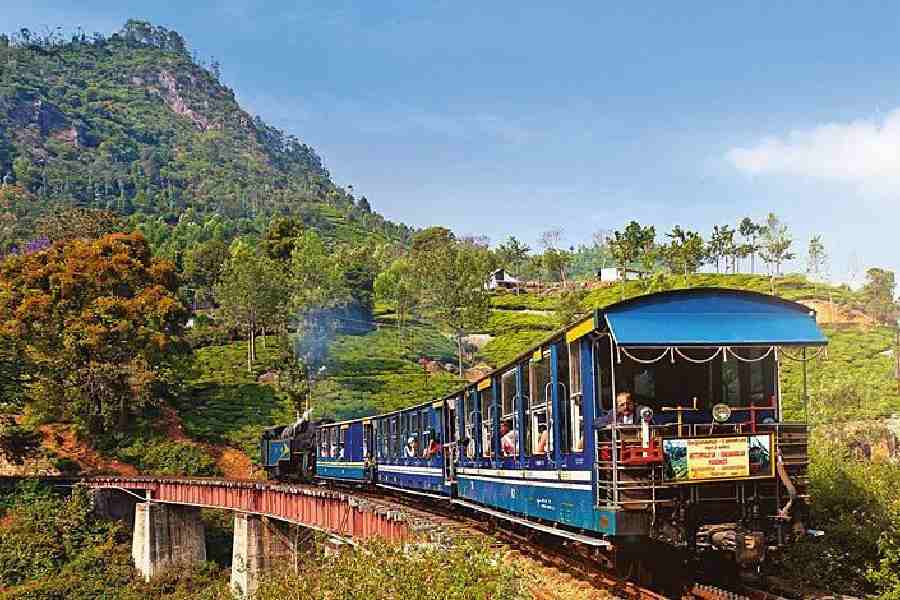THE MAMMARIES OF THE WELFARE STATE By Upamanyu Chatterjee, Viking, Rs 395
'First the job didn't make sense, and I thought then, when it does, I'll settle down. When it did, it didn't help, I'd always be wondering, thinking chaotically of alternatives...'
Agastya Sen, eight years ago. By the end of English, August, the 24 year old no longer knew why he was stuck in the anachronistic Indian administrative services. Or the dead and decaying Madna, a town that offered nothing for the half-Goan-half-Bengali city boy with a craving for 'sex and marijuana'.
The charm of English, August was its humour, most of which lay in 'August' or Agastya's reactions to an environment which appalled him. It was an understated horror designed to jolt without sentimentality. But August has disappeared in favour of Agastya in The Mammaries of the Welfare State, eight years older and too much a part of the 'Steel Frame' of bureaucracy to provoke thought through contrasts.
Upamanyu Chatterjee's 1988 novel was titled English, August: An Indian Story. August was the blueprint for the Indian Urban Male everywhere. His culture shock in Madna was one we could identify with, and laugh at. But in the sequel, both the humour as well as the critique are lost in favour of a tediously long chronicle. And though Chatterjee appears to be attempting a revelation of the extent of corruption embedded in our country's administrative, political, social and even cultural machinery, the result is simply revolting.
Instead of being an exposé of the personal growth (or decay, if you will) of Agastya, the book is a desperate attempt to amuse through a series of tales too long, too uninteresting and lacking too much in humour to be called anecdotes. Agastya is no longer Chatterjee's protagonist. He is somewhat incidental to the plot. For the most part, the narrative jumps from one debauched bureaucrat to another, with a nauseating attention to detail.
A sample: 'A shaved pubes the colour of toffee and a black and fat tool. He tweaked back the foreskin and didn't notice the rich rings of crud beneath it before his tongue slithered out to tease the pink head.
Aaaaaarrgghhhhhhh. The pong of Chamundi's penis flung him back...Ggrrraaaaaaghhhhhhh.'
The chief revenue divisional commissioner of Madna, Raghupati, assaulting his massage boy, Chamundi.
And though Raghupati is the most offensive of the lot, the length of the chapter devoted to him gives one the impression that Chatterjee is quite fond of him. 'Conduct Unbecoming of a Civil Servant' stretches on for 49 taxing pages. Not a word effortless, and much of it wholly unnecessary.
Chatterjee of course, tries to give us a reason for Raghupati's actions: a hunger for power that, in various degrees, drives all officials of the 'Steel Frame'. Ejaculating on a memorandum, he squeals: 'Yes, blobs of spunk on dust and cockroach shit!...When someone grovels for your favour and you can jerk off on his entreaty - that is shakti.'
This is the impression of the welfare state we carry away at the end of the novel. Agastya is now a part of this world, for his internal struggle has ceased. He is now immune, having achieved a detached acceptance, even appreciation of the system, assuring him a berth in its brotherhood.
Yes, we are told that he escapes as often as he can. An evening of dope-smoking culminates in a rare glimmer of truth, early in the novel, when the middle-aged advertising executive, Daya, with whom he is involved, asks him: 'Why then did you become a civil servant in the first place?'
His answer: 'Because...one is likelier to know somebody who knows somebody who knows somebody who knows a cop. Or so I believed eight years ago. Now...I know the government can fuck you bad even if you're part of it - unless you suck, suck, suck.' The pseudo-anglicized boy knows now the rules of bureaucracy. He has all the necessary armour in place.
To be fair, Agastya still does not accept bribes. But his answer to an attempt to buy him is to jump on his bicycle, ride to a slum, and hand over the money to a suitably attractive dweller. After thieves promptly relieve her of her burden, 'Ogu' (as his father calls Agastya) is provided with the opportunity to give valiant chase on his bicycle. Is this his strategy to champion the cause of the 'Great Unwashed'?
The inertia of will pervading the world he inhabits has irrevocably permeated his psyche. 'But I like it here,' he protests, when asked why he continues with the IAS. 'And quit and go where? The more years one spends in the civil service, the more competent one becomes to remain in it.' Chatterjee seems bent on proving the system at fault for the deterioration of August, but statements of this sort are clichés that fail to impress.
But most disruptive is the complete absence of any structural harmony in the book. The fates of the plethora of characters, presented in a most random, episodic fashion, are difficult to track, never having engaged any real interest of the reader in the first place. The few chapters dealing directly with Agastya hold one's attention feebly. The only interesting character in the novel, Rajani Suroor, a street-theatre group leader who knows his way around the Steel Frame, is comatose for the majority of the novel.
'In my eight years of service,' explains Agastya, 'I haven't come across a single case in which everybody concerned didn't try to milk dry the boobs of the Welfare State... But I suppose that's what the boobs are there for.' For all its cynical realism, glaring for its absence is an honest look at the man for whom the 'system' has been designed - the man on the streets without access to the welfare 'udder' because he lacks the necessary tools of manipulation; the man for whom, after the spoils are divided, remains nothing.
 Thursday, 12 February 2026
Thursday, 12 February 2026









